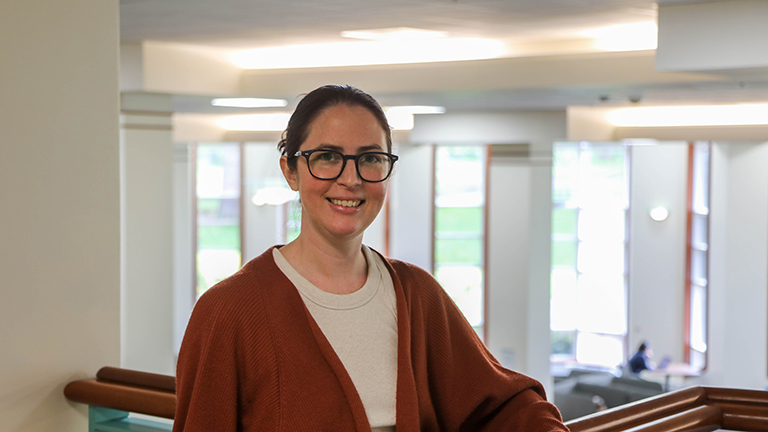Talia Paz's path to librarianship highlights her commitment to following her interests and embracing change. With a bachelor's degree in communication, Talia wanted a career in publishing, taking on various roles in publishing and communications. However, she soon found herself in marketing jobs, a field she didn’t feel passionate about.

In 2020, as the pandemic broke out Talia Paz took the opportunity to reassess her career. Reflecting on her love for reading and writing, she explored career options and considered librarianship. She enrolled in a 12-month postgraduate course in library information science to see if it was the right fit. After the course, Talia knew she'd found her passion and began looking for master's programs.
Forging a New Path
Living in Brisbane, Queensland, Australia, Talia found limited options for master's programs in library information science. “We don’t have many master's programs in library information science,” she said, acknowledging the field's relatively small size compared to the size of her country.
Talia always wanted to live overseas. The pandemic emphasized life's unpredictability, motivating her to pursue this dream. She researched U.S. master’s programs with financial aid for international students and moved to Greensboro in 2021 to attend the University of North Carolina.
Talia's previous experience in the U.S. at a Girl Scout camp in Massachusetts eased her transition. While getting her master's degree, she worked in the campus library and completed two internships. She enjoyed interacting with students at the reference desk, saying, “What I really liked about the job I had in school was working on the reference desk, meeting with students and faculty, and actually being involved in the library. I realized I needed interaction with people.”
She developed an interest in information literacy and liaison roles, which involve teaching and reference work for specific departments. Acknowledging the competitive and niche nature of the library industry, Talia knew relocation was often necessary. After two years in North Carolina, she was ready for a change.
The opportunity to work on the west coast, a bit closer to home, was appealing. “When this job came up, I just went for it and hoped for the best,” she says. Now, Talia works directly with the School of Journalism and Communication as the subject liaison, assisting undergraduates in PR, advertising, and journalism, as well as graduate students. Having been in this role for eight months, she finds the journalism program and classes engaging.
Getting Involved
Talia spends half her day working on her library projects and the other half doing research consultations with students or classroom instruction. She said, “I participate in various student activities, I enjoy being involved in student work, school events, and workshops.” Talia shared that she likes being out of her office and engaging with what faculty and students are doing.
As a librarian, Talia often engages in service projects, such as serving on hiring committees, attending conferences, and learning about the latest tools and topics to incorporate into her teaching. She is currently working on a project to teach students about fact-checking. In April, Talia was selected by the Office of the Provost to be one of three coordinators of the newly revived Faculty Club. In this role, she'll work with colleagues on programming and promotional activities.
Talia is also curious about artificial intelligence (AI) and is eager to see how different departments approach AI, whether they use it as a tool or dismiss it. Her newly published research guide, “What is Generative AI?” provides students with a wonderful introduction to using these tools effectively and ethically in their own work.
Librarian liaisons, also known as subject specialists, are assigned to academic departments based on each librarian’s educational background, professional experience, and interest. These librarians serve as a bridge, through teaching and outreach, between a complex system of libraries and collections and the student in the classroom. Visit the Subject and Area Librarians webpage to find other subject specialist librarians and follow #MeetYourLibrarian and @UOLibraries on social media to learn more about how subject specialist librarians serve our UO and civic communities.
—By Mona El-Haddar (‘24, Journalism: Advertising) communications assistant, UO Libraries
